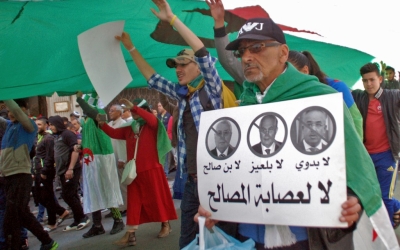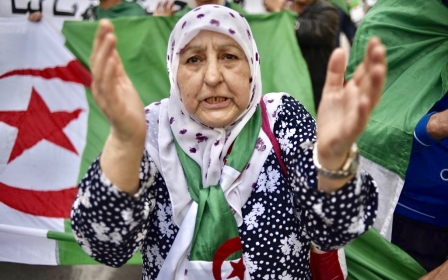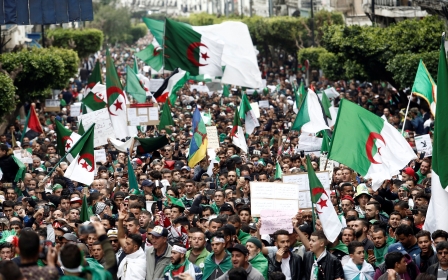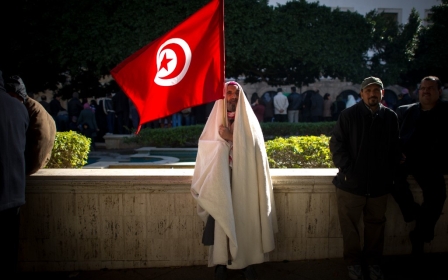Algeria anti-corruption drive topples Bouteflika insiders, but where will it end?
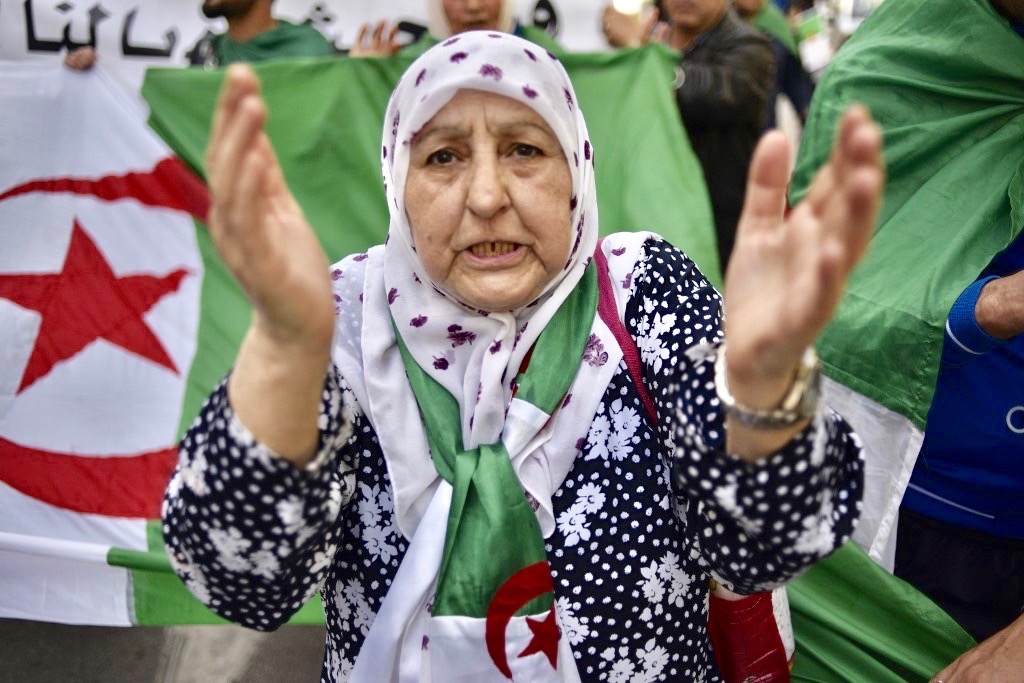
It is a sight that is set be become more and more common in Algeria.
On Monday, the former head of Algeria’s police, Abdelghani Hamel, and his son appeared in court as part of a judicial investigation into corruption cases.
The onetime police chief, said to have been part of the circle of former president Abdelaziz Bouteflika, was sacked in June 2018 after speaking publicly about an investigation into cocaine smuggling. The so-called “Butcher Case”, referring to the nickname of the principal suspect, has tarnished numerous parts of the security services.
“He who seeks to fight corruption must be clean himself,” Hamel declared at the time to journalists.
Going after the 'oligarchs'
This court summons for yet another former pillar of the Bouteflika regime is part of a series of proceedings launched against those whom Algerians call “the oligarchs”: powerful businessmen who since the early 2000s have grown rich on public sector businesses supported by oil rents.
In his most recent speeches, the strongman of the moment, Army Chief of Staff Ahmed Gaid Salah, has focused repeatedly on the fight against corruption, inviting the courts to reopen certain cases.
On 10 April, Salah, who is deputy minister of defence, said: “The justice system, which has regained its independence, will now act in complete liberty, with no constraints and without yielding to pressure or orders, undertaking legal proceedings against the whole gang of those who engaged in the misappropriation of public funds and abused their power to illegally enrich themselves.
“To that effect, we reassure the public that all of the previous files will be reopened: the Khalifa case, the Sonatrach case, the Butcher case, and other corruption cases which have led to considerable losses to the public treasury.”
'The justice system, which has regained its independence, will now act in complete liberty, with no constraints'
- Ahmed Gaid, chief of staff
Since then, numerous figures have found themselves imprisoned, awaiting the outcome of court proceedings: the Kouninef brothers, a group of low-profile siblings close to Bouteflika’s brother, who head an industrial empire; the one-time boss-of-bosses Ali Haddad, who was arrested while trying to flee Algiers over the land border with Tunisia; and Issad Rebrab, a magnate well-known for opposing the Bouteflika-headed regime.
The ex-prime minister in court
The charges against the Kouninefs, according to the El Watan newspaper, “pave the way inevitably toward numerous public figures”.
Chief among them, according to El Watan, is Said Bouteflika, brother of the president who resigned on 2 April after weeks of protests.
Said Bouteflika, the paper wrote, “allowed the Kouninef brothers intimate access to the state’s decision makers, permitting them to influence those decisions, and to profit from public sector contracts in numerous areas (from water to industry, public works and telecommunications), in which ministers played the role of go-betweens.”
Former prime minister Ahmed Ouyahia, as well as the current finance minister, Mohamed Loukal - who previously headed the Bank of Algeria and has been in the job a month - have also been summoned before the courts for wastage of public funds and abuse of power. Loukal appeared in court on Monday.
One portion of the political class has welcomed this campaign. Ali Benflis, opposition figure and onetime head of government, said in a statement that “what is taking place now has nothing in common with the fleeting and traumatic ‘clean hands’ campaigns our country has experienced previously. This time it is part of the enormous project of rebuilding that the Algerian people are demanding”.
That opinion was not shared by another voice of the opposition, Louisa Hanoune, secretary-general of the Workers Party.
“With this crackdown, they are trying to make us think that the system is capable of being reformed, in the event that some people close to the Bouteflika family lose their posts or get arrested,” she told a crowd of supporters on Saturday. “But the whole system is corrupted and corrupting.
“The same justice system closed its eyes to all of these abuses for decades because it was not independent of interference from the executive power. Who is going to fall for the idea of a miraculous conversion to an independent judiciary?” she added.
A diversion?
On his Facebook page, the opposition figure Said Sadi, founder of the Rally for Culture and Democracy party, attacked the army chief directly.
“Instead of reacting in tune with an unprecedented moment in our history, the chief of staff wants to set himself up as a sort of righter-of-wrongs,” Sadi wrote.
“But as a diversion, he hopes to simultaneously hide or obscure the demands of the public, divide the movement, settle his scores and pollute the difficult issue of corruption by jumbling the different genres and perpetrators.”
The scale of graft is vast. According to Djilali Hadjadj, spokesman for the Algerian Association for the Struggle Against Corruption, almost $60bn was misappropriated in Algeria over a period of 15 years.
“To that figure we should further add capital flight, tax evasion, and other types of money laundering,” he said at a news conference earlier this month.
Middle East Eye propose une couverture et une analyse indépendantes et incomparables du Moyen-Orient, de l’Afrique du Nord et d’autres régions du monde. Pour en savoir plus sur la reprise de ce contenu et les frais qui s’appliquent, veuillez remplir ce formulaire [en anglais]. Pour en savoir plus sur MEE, cliquez ici [en anglais].


